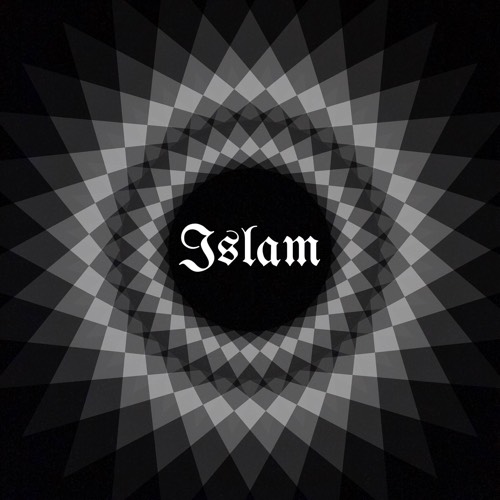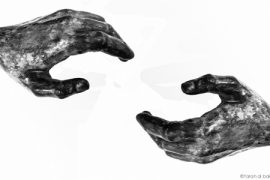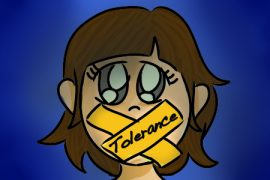What are the real signs of islamophia that faces practicing muslims in western countries? And how does it really impact practicing muslims who live abroad?

The buffer of tolerance in the UAE that we often take for granted is prized when juxtaposed against the so-called, modern Western society. The last five years, having moved to London post-marriage, are indicative of this. In my unintentional social experiment, I continued wearing my abaya and Sheila (lumped together in the Western narrative as the ‘Burqa’).
My practice of Islam is rooted deeply in an Arab cultural context. No part of Islamic practice was odd, be it fasting or wearing the hijab. Even with non-Muslim friends, there was never a need to explain myself or to face judgmental glances or jokes. So in my naivete, I did not pick-up the hints when I was asked, “Will you wear the abaya in London?” “Will you take your scarf off?” I did not understand why I needed to change what I wear simply because I was moving to a new post address.
In the vaguest sense, I must say that it has been an interesting, yet difficult, time. When Lee Rigby was murdered in 2013 by mentally-unstable, radical men, I got a first-hand account of being swept into the backlash against Muslims. The next day after the incident, I remember being on a bus getting home and a little girl, not more than four, got up from the seat next to me and sat on her mother’s lap saying ‘Ewww, I don’t want to sit next to such people”. Her mother made no effort to correct her child and continued staring away. It was the moment I started noticing things such as no one wanting to sit next to me on the tube or the bus, people giving me disgusted looks or people distancing themselves from me, shopkeepers chatting with everyone except when it’s my turn, passers-by making remarks about my dressing and in conferences, people choosing to ignore me.
I stopped going for late evening/night events for a short time. Over these five years, I have found myself becoming aware and alert, even if I am simply grocery shopping for the week. I briefly wondered if this was a way for this manufactured fear to takeover my life. But it was put to rest in early 2014, when Zack Davies attacked a Sikh man with a hammer and a machete as a “revenge for Lee Rigby”. There was a co-relation between the cold stares and glances on the Tube to a media report on a radicalised person. I began reading the news on people’s faces and in their behaviours. The Paris attack of 2015 is our new 9/11. The discrimination that avalanched its way into our lives has renewed itself as the burden of a newer generation.
To understand this fear over the Muslim woman’s dress, we have to look back at 9/11 because it is the watershed moment of current memory. The hijab became a focus for two main reasons: one, its incompatibility with a Western idea of feminism in the loss of a woman’s agency because her body was covered up (or forced to cover, as the Taliban brush was painted over us) and two, the ease at which the hijab symbolised Islam. The veil has existed for at least 2,000 years before Islam, yet it is the easy target of the media’s reductionist treatment of a Muslim identity and eventually, in becoming a sign of everything wrong with Islam.
In the UK, especially with the post-war immigration discourse, where an unreliable, intentional fear-mongering agenda has existed, the immigrants have always been demonised as The Others. Not much has changed in the right-wing narrative since then. When the media pursues an irresponsible and intentional campaign against Muslims, it is hardly surprising to experience the politics of hate. The repercussions are evident in the daily experiences of Muslims, especially the ones who wear their identity.
Having said that, the nuances of being a Muslim in Britain are not recognised enough. The practice of Islam is different because of the cultural influence. For example, in South Asian communities who largely moved in the 1970s, there is a continuation of an obsolete version of culture, mixed with a rigid practice of Islam. This leads to a macro and micro problem—the problem outside of the Muslim circles in dealing with stereotypes and hate, but the problem within the Muslim circles of bringing our lived experiences to 2015 instead of a nostalgic utopia.
The lessons have not been easy, but these are times that have necessitated looking inward. It has taught me patience, but sadly made me realise that I don’t have the luxury to shut myself off when in a bad mood. I must smile at strangers even if they don’t return the gesture or else my presence could threaten or make others shuffle in discomfort. This has lately extended to a public liberty to ask me, whether sitting in a cafe or walking down a street, why I have made the choice to follow Islam and why do I wear the burqa? While I am happy to engage with others and have done so for many years, it is unfair that I cannot do the same to others!
It is tough not to sound cynical but the discrimination is real. It is not playing victim; the rise of the right-wing nationalists and the increase in public hatred are not coincidences. It is strategic. Personally, I am not a big fan of active proselytization and instead, I find it more useful to stop the preaching and start the practicing, not just of religion but of shared human values which is an integral aspect of our Islamic teachings.
Why do I still wear the burqa?
To resist. That is the simplest way to answer this question. My identity as a woman is as important to me as my identity as a Muslim. Will the banning of hijab end the fear politics? The next day, there will be a new fear waiting for us at our doorstep. Islam, for me, is a big lesson of compassion and generosity cracking the harsh, sun-baked mountains of Arabia. We are living in times where big fears need to be countered with small mercies and radical acts of kindness.



